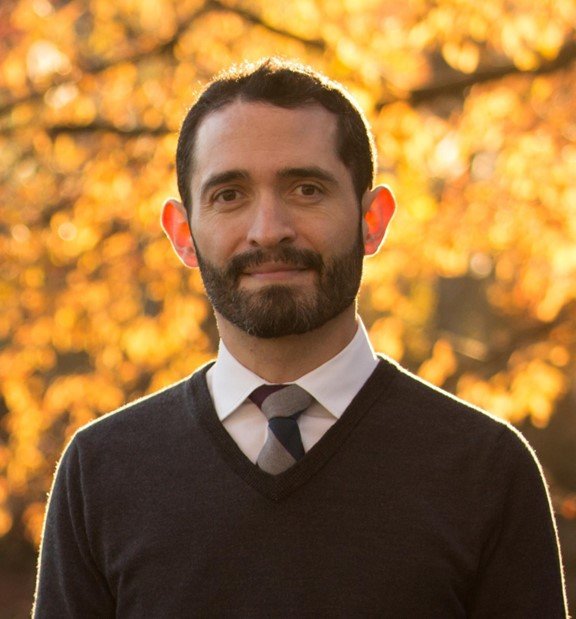By David P. Rivera, Ph.D., Queens College, City University of New York & co-editor of Affirming LGBTQ+ Students in Higher Education (APA Publishing)
National Coming Out Day, October 11, is a meaningful occasion for many LGBTQ+ individuals to share their authentic selves with the world. It’s a day of self-expression, courage, and solidarity. However, for many, including BIPOC LGBTQ+ youth, this celebration can be a complex and emotionally charged experience. This piece delves into the unique mental health challenges that this intersectional group faces, exploring the ways in which their multiple identities (race, ethnicity, sexual orientation, gender identity) interact with and impact their mental wellness.
To understand the mental health challenges faced by BIPOC LGBTQ+ youth, we must first grasp the concept of intersectionality. Coined by Kimberlé Crenshaw, intersectionality recognizes that our experiences are shaped by the convergence of multiple identities, including, but not limited to, race, ethnicity, sexual orientation, and gender identity. Furthermore, Crenshaw describes the ways systems and policies “interlock and intersect” to oppress people and communities with multiple oppressed identities.
For BIPOC LGBTQ+ youth, their identities are multifaceted, and each aspect plays a significant role in shaping their experiences. These young people navigate not only the complexities of their LGBTQ+ identities but also the challenges associated with being a person of color. It is at the intersection of these identities that unique mental health concerns often arise. Research consistently shows that LGBTQ+ individuals, in general, are at a higher risk for symptoms such as depression, anxiety, and suicidal thinking when compared to their heterosexual counterparts. Further, the situation becomes even more complex for BIPOC LGBTQ+ youth. The Trevor Project’s 2022 National Survey on LGBTQ Youth Mental Health found that LGBTQ+ young people of color experience symptoms of anxiety, depression, and suicidal thoughts at alarmingly high rates. This intersectional disparity can be attributed to the compounding stressors young LGBTQ+ people contend with when navigating discrimination and bias related to race, ethnicity, sexual orientation, gender identity, and more.
Coming out as LGBTQ+ is a deeply personal and transformative process, marked by self-discovery and self-acceptance for many people. Coming out can also be conceptualized as a series of processes over the course of one’s life when an LGBTQ+ identified person invites others into their world. Experiences of coming out are varied and carry different meanings that can be influenced by one’s understanding of one’s own intersectional identities, as well as societal pressures and cultural norms. Some people may choose to come out in very public ways while others may choose to be less public about sharing their sexual orientation and gender identity with others. For BIPOC LGBTQ+ youth, this process can carry additional layers of complexity. They may face cultural expectations and family dynamics that are deeply rooted in their racial or ethnic backgrounds. The struggle to reconcile LGBTQ+ identity with cultural identity can lead to feelings of isolation and confusion, contributing to mental health challenges.
Minority stress theory, developed by Ilan H. Meyer, explains how individuals from marginalized groups experience stress related to discrimination and stigma. BIPOC LGBTQ+ youth often face both racial and LGBTQ+ discrimination, leading to compounded stressors that can negatively impact mental health. A common minority stressor, microaggressions, are subtle, often unintentional forms of discrimination or bias, that are pervasive in the lives of BIPOC LGBTQ+ youth. These microaggressions can take various forms, from racially insensitive comments within LGBTQ+ communities to homophobic or transphobic remarks within their racial or ethnic communities. Experiencing microaggressions can be emotionally taxing, and lead to feelings of alienation and frustration. Over time, these accumulated microaggressions can contribute to chronic stress and worsen both mental and physical health outcomes.
Colleges and universities play a crucial role in supporting the mental health of BIPOC LGBTQ+ youth. Many institutions offer LGBTQ+ resource centers, counseling services, and safe spaces that can provide essential support. It is vital for these resources to be inclusive and sensitive to the intersectional experiences of these students. Support groups specifically tailored to BIPOC LGBTQ+ youth can create a sense of belonging and understanding. Additionally, culturally knowledgeable mental health professionals trained in identity affirming frameworks and who are well-versed in the unique challenges faced by these young people can offer valuable assistance.
The Way Forward
Creating an inclusive campus environment is the responsibility of the entire campus community, not just LGBTQ+ individuals or people of color. Allyship plays a crucial role in this effort. Allies are individuals who actively support and advocate for the rights and well-being of BIPOC LGBTQ+ youth. To be an effective ally, it is essential to educate oneself about the hurdles that this intersectional group faces and actively work to combat discrimination and microaggressions. Allyship fosters a more inclusive and affirming environment, reducing the stressors that negatively affect mental health. Intersectional activism is a powerful tool for addressing and working to reduce the mental health challenges faced by BIPOC LGBTQ+ youth. This involves advocating for change at the intersection of racial and LGBTQ+ identities and working to dismantle systems of oppression.
National Coming Out Day is a celebration of self-acceptance and authenticity for LGBTQ+ individuals, and it’s essential to recognize that the experiences of BIPOC LGBTQ+ youth are uniquely complicated. The intersectionality of their identities, compounded by the challenges of coming out processes, discrimination, microaggressions, and isolation, can take a toll on their mental health. To address this need, The Steve Fund is proud to launch the “LGBTQ+ in Color” series of micro-learnings focused on helping BIPOC LGBTQ+ youth develop critical consciousness about factors that impact their wellness. The LGBTQ+ in Color micro-learnings can be found on The Steve Fund’s website in the Resources section.
By promoting intersectional activism, allyship, and inclusivity, we can help create more supportive and inclusive environments. This, in turn, can lead to improved mental wellness for BIPOC LGBTQ+ youth, allowing them to thrive and embrace their authentic selves during their college years and beyond. National Coming Out Day serves as a reminder that every LGBTQ+ individual deserves love, acceptance, and affirmation.
